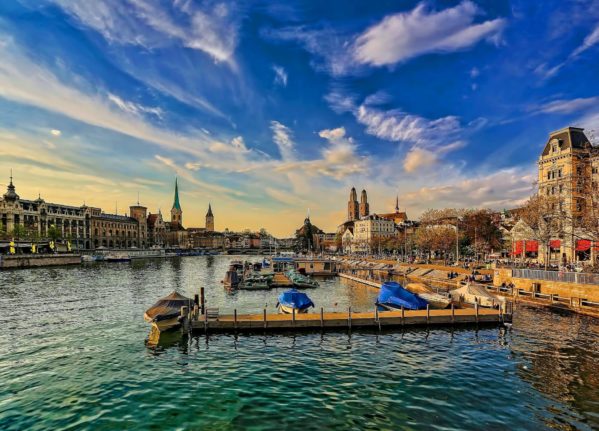The Federation of German Consumer Organisations (VZBV) is bringing a class action lawsuit against Vodafone for increasing its prices unlawfully.
The lawsuit is concerned with a price hike that came in the spring of 2023, when Vodafone raised the prices for its cable and DSL services by €5 per month.
The action against Germany’s third largest telecommunications provider was announced in November of 2023.
Now the VZBV is promoting an online portal that makes it easier for affected customers to check if they can join the lawsuit.
Those who want to confirm their eligibility can click here and they’ll be asked to submit details from their invoices and contract documents.
Who can join the class action against Vodafone?
With around 30 million customers in Germany, even a small penalty could amount to a huge payout for Vodafone. Around 10 million customers were affected by the tariff increases in question.
Any Vodafone customers who saw their service rates jump €5 in early 2023, without having changed or upgraded their plans voluntarily, may be eligible to join the lawsuit. Additionally customers of one of Vodafone’s subsidies, including Unitymedia, Kabel Deutschland, Vodafone GmbH, Vodafone West GmbH and Vodafone Deutschland GmbH, may also be eligible.
This lawsuit applies to customers on whom the rate hike was automatically applied. So if your bill went up without actively booking new services or rates, you can join the class action lawsuit.
If you switched plans or renegotiated your services at that time, the lawsuit doesn’t apply. It also doesn’t cover customers who joined Vodafone after the price increase had gone into effect.
The VZBV said that 40,445 consumers had registered complaints against the company within a week of the increased prices coming into effect.
How much money may customers win?
The VZBV’s hopes to push Vodafone to withdraw the price increases, and to reimburse overpayments plus interest.
So if the case is won, Vodafone could be expected to pay back affected customers €5 per month that they paid the higher rate. For example, if a customer’s rate was raised on March 1st, 2023 and they remained with Vodafone for the following 12 months, they would be owed €60.
But even if the case is won, only those who have registered with the class action lawsuit will be paid out.
The advantage of joining a class action lawsuit is that it costs nothing to customers, so there is no risk to plaintiffs. If the case is won, they should automatically be paid out.
What’s the basis for the case against Vodafone?
The VZBV alleges that the way Vodafone hiked its tariffs was a breach of consumer protections. Vodafone should not have increased the prices without renegotiating with customers, it suggests.
“The Verbraucherzentrale Bundesverband considers Vodafone’s price increases to be legally ineffective,” said the association boss, Ramona Pop, in November 2023. They added, “An additional cost of €5 per month is a lot of money for many people.”
The VZBZ also hopes to reinforce consumer protections through this action by sending a signal to other companies that are considering raising prices in this way.
Vodafone suggested the price increases were a result of inflation and higher electricity costs.
READ ALSO: How customers in Germany will receive money back for faulty cell phone coverage
Germany has a number of consumer protections in place that are specific to telecommunications services. For example: contract periods are limited to 24 months, and contracts need to come with an easily understood summary which includes services, price, contract duration and notice period.
Customers in Germany can also claim a right to payment reductions when the internet is too slow or when internet services are down for extended periods.
READ ALSO: Fact check – Is Germany’s internet really that bad?





 Please whitelist us to continue reading.
Please whitelist us to continue reading.
Member comments